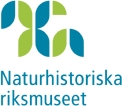About Our Partners
Darwin Iniative
Darwin Iniative
University of Leeds
University of Leeds

The University of Leeds (UoL) Institute of Integrative and Comparative Biology (IICB) is the principal partner for the Darwin project. UoL handles the Darwin project administration and all inter-party contractual arrangements. The University of Leeds is also the principal liaison for the International Survey team (CISS) partership with Agip KCO.
Caspian Environment Programme
Caspian Environment Programme

The Caspian Environment Programme (CEP) has supported the earlier Caspian seal projects (World Bank, 1997; ECOTOX, 2000-02) as well as the Darwin Caspian seal project. The CEP is taking forward the Seal Conservation Action and Management Plan (SCAMP) through its region-wide BISRAG (Biodiversity Action Group) and SAPICS (Strategic Action Programme Implementation Coordinators). The CEP funded (through the GEF II fund) the first Caspian International Seal Survey (CISS) of pup numbers and seal distribution on the winter ice-field in 2005, and provided further logistical support in 2006. Additionally in 2006, CEP funded the production of a DVD on the CISS ice survey and also contributed funding for seal surveying during the first Darwin workshop and for subsequent field work in late 2006 in Kazakhstan and Iran. The new Caspian Seal Conservation network and Caspian seal centres are now developing in consultation and cooperation with the CEP regional biodiversity networks.
In 2009 a new CEP project, called 'Caspeco' was funded by the Global Environment Fund (GEF). This project, which ran from 2010-12, was intended to be ecosystem-based, and included a component very relevant to seals, which was the development of a region-wide plan for special protected areas for seals (SSPAs). During the project it was determined that Kazakhstan would take the lead in establishing one or more pilot protected areas for seals, but funding was not available to begin implementing these areas during the life of the Caspeco project.
In December 2012 a Biodiversity protocol to the Tehran Convention was agreed at the Convention of the Parties meeting no. 4 (COP4). This protocol will be important in developing a strong international legal basis to drive the conservation of Caspian seals.
AGIP
AGIP KCO
![]()
Sea Mammal Research Unit
Sea Mammal Research Unit
![]()
Sea Mammal Research Unit (SMRU) is based at the Gatty Marine Laboratory of the University of St Andrews in Scotland and is renowned for expertise in many aspects of seal biology, including population surveys and telemetry studies. SMRU is a collaborator on the Darwin project, with Dr Ailsa Hall and Mr Callan Duck as principal team members.
Swedish National History Museum
Swedish National History Museum

The Swedish Museum of Natural History (NRM) in Stockholm has generously provided scientific support for the Caspian seal project since 2005. The Caspian seal survey (CISS) team leader, Dr Tero Härkönen, holds a research position at the Department of Ecotoxicology at the Museum.
Zoological Society of London
Institute of Zoology
![]()
The Institute of Zoology (IoZ) at the Zoologfical Society of London (ZSL) has been the source is the source of much of the project’s expertise. The seal project application to the Darwin Initiative originated from IoZ in 2004, while Project Leader Dr Simon Goodman held a research position there. Project team members at IoZ are Dr Andrew Cunningham (epidemiologist, pathologist), Dr Paul Jepson (marine mammal pathologist), Mr Matt Perkins and Mr Rob Deaville (lab support) and Dr Sue Wilson (visiting scientist).

